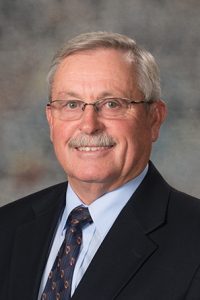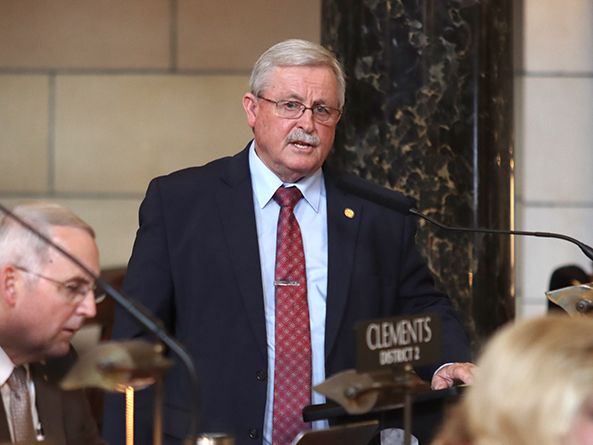Consumption tax proposal fails on first round
A proposed constitutional amendment that would replace Nebraska’s tax system with retail consumption and excise taxes failed to advance from general file April 5.

If passed by the Legislature, LR264CA, introduced by Sen. Steve Erdman of Bayard, would place the question on the November 2022 general election ballot. The change would go into effect Jan. 1, 2024, if approved by voters.
Legislative efforts in recent years have failed to yield significant tax relief, Erdman said, and Nebraska’s tax system drives away workers, businesses and retirees.
He said replacing property, income, sales and inheritance taxes with a flat consumption tax — with a rate of approximately 9 percent — would increase economic growth by attracting residents and creating jobs.
Elmwood Sen. Robert Clements supported the proposal, saying a simple tax system with a single rate would be best.
“We’ve tried and tried to put some reins on local property tax increases, and this would help control the overtaxing and overspending of some entities,” he said. “I think it’s time to let the voters decide and let us know how they would like to be taxed.”
Sen. Steve Halloran of Hastings also supported LR264CA, saying the state’s current tax system is flawed. He said lawmakers would create a “nuts and bolts” bill to implement the proposal in the next legislative session if voters approve it.
“We need to give the second house a chance to decide the tax model that’s best for them,” Halloran said, “and we’ll work out the details.”
North Platte Sen. Mike Jacobson said he was intrigued by the proposal. He said implementing a consumption tax through legislation, however, rather than a constitutional amendment, would allow lawmakers to change the new system more easily.
Jacobson also raised several questions about how the proposal would be implemented. He questioned, for example, whether the state would assume responsibility for paying off bonds issued by local political subdivisions that could no longer levy their own taxes.
“[LR264CA] sounds very good, but it’s the details that we’re going to need to work on,” Jacobson said. “I think we’re premature on pushing this out to the voters without having those answers.”
Additionally, he said, the consumption tax rate likely would have to be much higher than 9 percent to raise the same amount of revenue as the current system.
Sen. Tom Brandt of Plymouth said he was concerned that, by approving the proposal, voters would cede control of local political subdivisions, including school districts, to a central state authority.
That authority would have to approve local funding requests and could decide to consolidate smaller school districts, he said.
LR264CA failed to advance to select file on a vote of 19-14. Twenty-five votes were needed.


